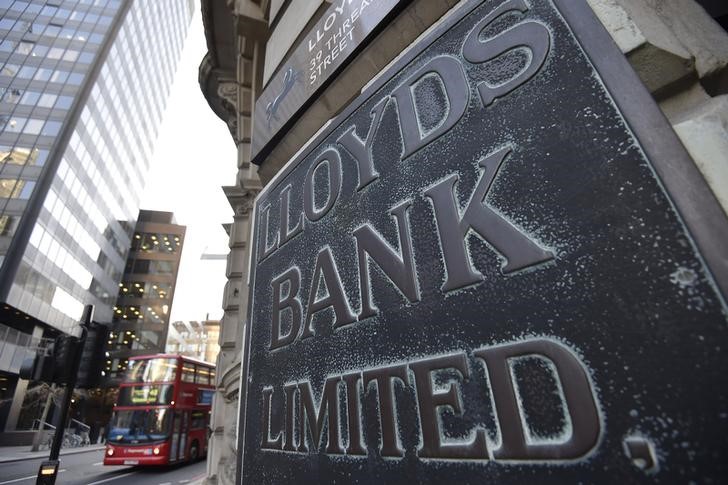By Sinead Cruise and Matt Scuffham
LONDON (Reuters) - Shareholders in Britain's Lloyds Banking Group (L:LLOY) are calling on the government to rethink plans to sell down its stake in the lender to ensure taxpayers get the best deal.
Chancellor George Osborne has pledged to sell part of the government's remaining shares in the bank to ordinary Britons in a sale reminiscent of the 1980s privatisations of British Gas and British Telecom under former prime minister Margaret Thatcher.
But investors argue an offer to retail investors, which would need to be made at a significant discount to the market price, would not represent best value for taxpayers.
Instead, they say the government should allow UK Financial Investments (UKFI), which manages the stake, to continue with a trading plan which enables Morgan Stanley (NYSE:MS) to sell the government's shares daily on the stock market.
"I do think it would be an awful lot simpler and less costly to sell the remainder of the shares in the market than execute a retail sale at some fixed discount," Richard Buxton, head of UK equities at Old Mutual Global Investors, told Reuters.
UKFI has sold a 10 percent stake in the bank so far this year at a profit to the government's 73.6 pence buy-in price, The government has raised more than 13 billion pounds from its shares so far.
Lloyds already has the largest number of retail investors of any FTSE-100 stock and fund managers have questioned the logic of selling more at a lower price than they could be sold for to financial institutions.
"When we are dealing on behalf of our clients, we have a duty of best execution, to make sure we are getting the best possible price whenever we are buying or selling stock," Eric Moore, an income fund manager at Miton, told Reuters.
"It begs the question, is this best execution for the government? It probably isn't," he said.
TAXPAYER BAILOUT
Lloyds was rescued by the government during the 2007-09 financial crisis at a cost of 20.5 billion pounds to taxpayers, leaving the government with a 43 percent stake.
Its performance has since been turned around by Chief Executive Antonio Horta-Osorio, who has simplified operations to focus on lending to British businesses and households. Lloyds is now the third-biggest bank in Europe by market value.
Its attractiveness to retail investors was boosted on Friday after it said it will look to return surplus capital to shareholders from the end of this year having already resumed dividend payments.
One factor behind the government's enthusiasm for a retail share offer may be the impending sale of its 78 percent stake in Royal Bank of Scotland (L:RBS), a significant chunk of which may be sold to retail investors, industry sources say.
Sources with knowledge of government thinking say the finance ministry is keen for investors to buy Lloyds' shares and benefit from the bank's turnaround as that may encourage them to buy RBS shares, too.
RBS is still counting the costs of past misconduct and has yet to pay a dividend. However, Osborne has set a target of selling at least three-quarters of the stake in the next five years.
"The Treasury won't be able to get the RBS disposal programme done without retail and if you're going to sell RBS shares to retail in the future it would be nice to have a successful transaction concluded where retail participated and felt good about it," one source said.
RBS was bailed out at a cost of almost 46 billion pounds to taxpayers and the government's stake is worth about 31 billion at current share prices, meaning a potential loss of 15 billion pounds from its investment.
Other fund managers have said they would not object to a Lloyds retail sale especially if it offered the fastest route to full private ownership but only if it was done at a 3-4 percent discount which would be comparable to those typically offered in placings of large volumes of stock.
"Without a block placing, then you are looking at least another year before all the stake is sold. We'd be supportive of any mechanisms to speed that up, within sensible parameters. It is all about the terms," said Mike Fox, senior fund manager at Royal London Asset Management.
